The message recited by Mr. Gholamali Khoshroo on the UN and addressed to Ban Ki-moon, casts an air of realism on the situation in the Middle East and accurately assesses the situation where Arab states of the Persian Gulf had procured ‘state-of-the-art’ weapons worth several billions of dollars, as militarizing the region and hence Iran’s missile program legitimate enough when seen in more positive defensive light, motivated by ‘highly volatile’ situation in the region:
Excellency,
Upon instructions from my Government and pursuant to the recent missile-test launches by the Iranian military forces and a campaign of disinformation as well as efforts to misinterpret Security Council resolution 2231 that followed, I would like to provide the following clarifications:
1- Security Council resolution 2231 does not prohibit legitimate and conventional military activities, nor does international law disallow them. Iran’s activities are not inconsistent with the said resolution, as Iran has not taken “any activity related to ballistic missiles designed to be capable of delivering nuclear weapon.” Iran has never sought to acquire nuclear weapon and never will in the future, as it fully honors its commitment under the NPT and the Joint Comprehensive Plan of Action (JCPOA). Security Council resolution 2231 is quite clear and devoid of any ambiguity when it comes to ballistic missiles. Moreover, the language in paragraph 3 of annex B of resolution 2231 is clearly not mandatory. Thus, we reject any arbitrary interpretation of the provisions of this resolution and its annexes, and call upon all parties to act in good-faith and refrain from provocations. The Islamic Republic of Iran believes there is no basis for the raising of this issue under 2231 framework in the Security Council.
2- Iran, as a country living in the most unstable and volatile region of the world, is fully entitled to build a credible conventional capability to deter and defend against any aggression. Iran’s recent ballistic missile test launches were part of ongoing efforts of its armed forces to strengthen its legitimate defense capabilities and to demonstrate the effectiveness and readiness of missile systems against security threats and to exercise the right to self-defense in the event of any armed attack. What Iran has always said and done points clearly to the full defensive nature of its military efforts against threats and intimidations. The statements made by the Iranian military commanders were evidently reflective of such policy. The commander of the Aerospace Force of the Guards Corps, whose statement has been wildly distorted by vested-interest parties, reiterated in his interview following the tests that “we won't start any war, we aim, however, to defend ourselves ... we don't intend to attack any country, but if we come under attack, we should be able to retaliate.”
3- It is demagoguery for those who are at the supplying and receiving ends of around $100 billion of the state-of-the-art weaponry just to the lower Persian Gulf sub-region in 2015 (while Iran’s entire defense budget in the same year was a small fraction of that amount) to hype Iran’s conventional missile-test launches to such a grotesque level. The disparity between Iran’s defense spending and that of other regional states is colossal, and has been acknowledged even by the US officials at the highest levels. Under such circumstances, it is outrageous that those who see no limit in the military build-up in the region seek to thwart our legitimate efforts to tap into our own human and material resources to build an imperative conventional military defense and deterrence.
4- For decades, Islamic Republic of Iran has been under threat of use of force by the United States and the Israeli regime in flagrant violation of Article 2 (4) of the United Nations Charter. The United States and the Israeli regime have kept brandishing their sword of aggression against and continued their saber-rattling discourse with Iran, including through the infamous term “all options are on the table”. And our entire region is paying now a staggering price for the destabilizing impacts of the direct and all-out aggressions against our neighbors. Last year, the Israeli regime even took military threat against Iran to its extreme. Moshe Yaalon, Defense Minister of this regime, in a speech on 5 May 2015 in the Shurat Hadin Law of War Conference in Jerusalem threatened to use nuclear bomb against Iran (see document S/2015/353 dated 19 May 2015 containing my letter addressed to the Secretary-General and the President of the Security Council). The same regime remains the only one in our region in unlawful possession of nuclear weapons and the only obstacle in the way towards establishing a nuclear weapon free zone in the Middle East. We expect the Council to live up to its Charter responsibility of maintaining international peace and security and address the threats to use force against a UN member state, similar to those I referred to above; threats that go evidently counter to the basic rules and principles of the UN Charter and international law.
5- The Islamic Republic of Iran, thus, reiterates that there is no basis for the raising of this issue in the Security Council and considers that it is contrary to the prevailing positive environment, and detrimental to the good-faith implementation of the JCPOA.
I should be grateful if you would have the present letter circulated as a document of the Security Council. Please accept, Excellency, the assurances of my highest consideration.
SH/PR


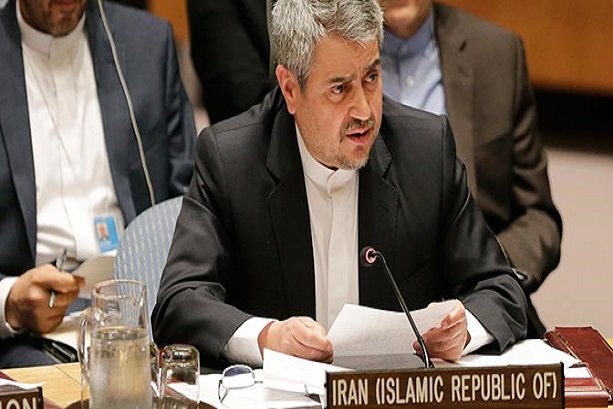


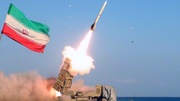
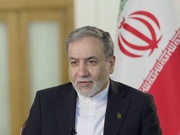
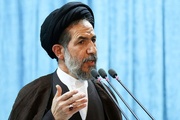

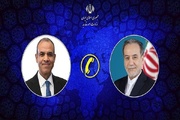
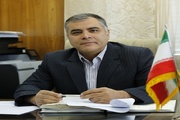
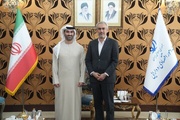
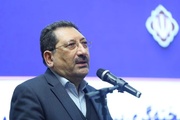









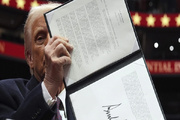


Your Comment